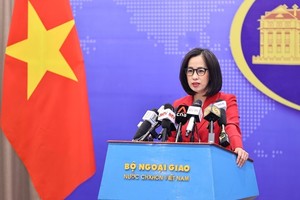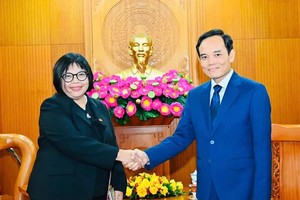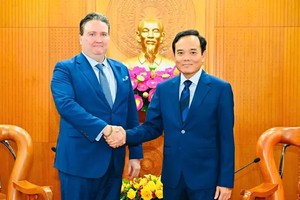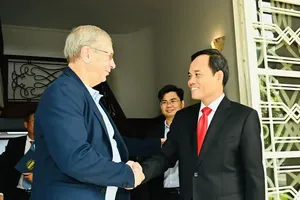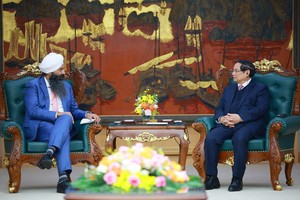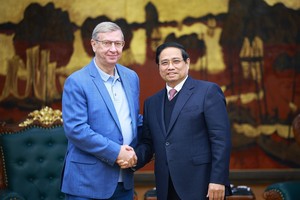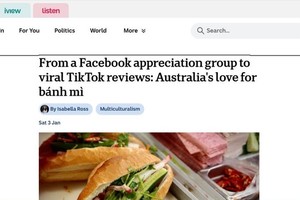ABIDJAN (AFP) – Post-election violence claimed 52 lives in the Ivory Coast in the past week, bringing the death toll this year to 462, the UN mission said, as strongman Laurent Gbagbo clung to power.
Rocket fire and shelling rocked the Abidjan suburb of Abobo, a stronghold of internationally-recognised president Alassane Ouattara, witnesses said.
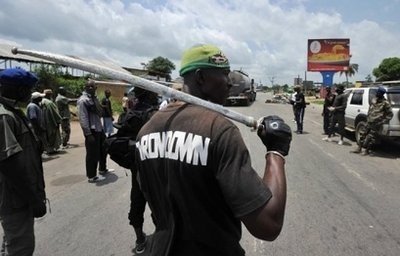
The United Nations Operation in Ivory Coast (UNOCI) said the west of the country was also wracked by violence, with militia fighters looting a warehouse belonging to the UN refugee agency.
During the week "shelling and indiscriminate violence against civilians claimed at least 52 lives, including five children and seven women, as well as several dozen injured," the UN mission's deputy human rights director said.
"The total number of deaths has gone up to 462 since mid-December" 2010, Guillaume Ngefa told reporters.
In Abobo, where much of the recent unrest in Abidjan has been centred, a resident told AFP he heard heavy weapons fire, rockets and shells nearby.
He could only see members of Gbagbo's Defence and Security Forces (FDS), he added on condition of anonymity.
Pro-Ouattara fighters have in recent weeks clashed with troops loyal to Gbagbo as they try to break out of their Abobo stronghold.
The UN on Thursday warned both Gbagbo's forces and local militias backing Ouattara that "deliberately launching generalised or systematic attacks against civilian populations could constitute crimes against humanity."
Ngefa said residents of the commercial capital Abidjan "continue to massively flee their suburbs due to the violence and a lack of access to food and medicine."
Valerie Amos, the head of UN humanitarian and emergency relief operations at the body's New York headquarters, also expressed concern.
"The escalation of violence and use of heavy weaponry, particularly in urban areas, is taking an increasing toll on civilians," she said in a statement.
"I am also concerned about the increasing targeting and harassment of immigrants from other parts of West Africa, thousands of whom are fleeing the country," she added.
"The destruction of civilian property, including shops that provide people a way of making a living, is also completely unacceptable," she added.
In the west of Ivory Coast, rival forces battled for strategic towns.
"There has been a lot of violence, a lot of confusion in Guiglo," UNOCI spokesman Hamadoun Toure told reporters.
"There have been attacks and looting against a United Nations agency. The HCR warehouse was looted," he added.
Guiglo, along with Duekoue, 30 kilometres (20 miles) to the northeast, are key crossroads leading east to the political capital Yamassoukro and south to San Pedro, the world's biggest cocoa exporting port.
Sources said Wednesday thousands were fleeing clashes on the road between Guiglo -- held by pro-Gbagbo troops -- and the town of Blolequin, some 60 kilometres (40 miles) to the west, seized by Ouattara fighters on Monday.
UNOCI raised the alarm Tuesday about the use of heavy weapons by Gbagbo forces against civilians.
UNOCI "has the means" to prevent the use of a MI-24 attack helicopter, being repaired in the military wing of Abidjan airport, as well as BM21 multiple rocket launchers in the hands of Gbagbo troops," Toure warned Thursday.
"It is a strong warning, and we really mean it and we will do it," he said, adding that these were non-conventional weapons whose use was forbidden after World War II.
The 10,000-strong UN mission has been criticised for failing to protect civilians as violence has escalated, but Toure said it was limited by its peacekeeping mandate.
The Economic Community of West African States (ECOWAS), meeting in the Nigerian capital Abuja on Thursday, called on the UN Security Council to strengthen that mandate.
They want to enable the mission to "use all necessary means to protect life and property, and to facilitate the immediate transfer of power to Mr. Alassane Ouattara".
ECOWAS also "requests the UN Security Council to adopt more stringent international targeted sanctions against Mr. Laurent Gbagbo and his associates".
French President Nicolas Sarkozy meanwhile called on the United Nations to ban the use of heavy weapons in Abidjan.
Gbagbo's camp has harshly criticised the UN mission and demanded it leave the country.
